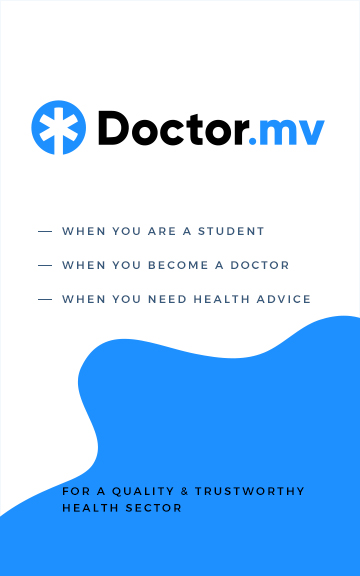
As Medical students, for some rotations, it is required of you to attend ward rounds. As we all know, ward rounds are doctor visitations to each patient admitted to their discipline.
This is we they discuss the management of the patient with each other, and with the consultant for his or her approval.
As students, our seniors will include the interns, residents and the consultant.
Now that we understand the basics, why is it important for you to not only attend ward rounds but be an active participant?
Many Medical programmes require the seniors of each rotation to grade and assess the students. They use different criteria such as attendance, participation, professionalism and depth of knowledge. Also, looking long-term, getting the approval of your seniors may open doors for you, making your progression in the Medical field a little easier.
If you impress them, they can impart secrets and give private sessions. In the end, they can even provide glowing recommendations for you, when it is time to apply for a position.
Now that I’ve outlined why it is crucial, what are the strategies that you can use to achieve this goal?
In this article, I will outline detailed steps that can be taken to not only receive a great assessment from your seniors but also leave a lasting impression for the future.
Know the time and place for your ward rounds
Each rotation has a specific time and location that the seniors have decided for when the rounds should start. It is now your job to find out that time and place, and to also make sure that you are prompt.
Most consultants are sticklers for time. This is understandable because punctuality shows that you are not only professional but that you also respect other's time.
For example, if ward rounds start at 6:00 am (yes, this can happen) at Ward 3, it is your responsibility to at least be there about 15 minutes before the appointed time.
Generally, however, you will have to be there one or two hours before rounds begin so you can clerk your patient(s) which you will have to present to your seniors during rounds. More on this later.
Know what is expected of you at ward rounds
Before ward rounds officially start, go to someone on the team (maybe the intern) and ask for information regarding ward rounds.
This goes with the aforementioned tip where you ask for the time and place, but here, you will ask what is required of you. The interns are a good place to start, because they are usually more forthcoming with advice.
Some examples of the expectations that they may have for students are:
If you are in a group, everyone should have at least one patient to clerk.
Punctuality and dress code regulations.
Attendance and information for other arrangements such as clinic, surgery or grand rounds.
Certain topics that the consultant expects you to know.
Build a solid knowledge base
It goes without saying that you ought to know the basics of Medicine.
Topics such as basic Pharmacology, Physiology and Anatomy should be fresh in your mind. Your seniors will expect you to know information that was taught to you in your pre-clinical years.
Also, with having a solid foundation, you are able to add to your knowledge throughout the rotation.
Read up on the specialty you are entering
After you have built a solid foundation for the basic pre-clinical topics, if you know what specialty you are joining, you ought to read up on that as well.
For example, if you are joining the Urology team, you need to know the common cases that the Urology team may come upon, such as urinary retention. What are the causes of urinary retention? How do you manage it? What are the complications associated with it?
Since you are a student, it is not usually required of you to know the rare cases. However, since the goal is to impress your seniors, it is advisable that you familiarize with common cases, and then move on to the rare cases.
Clerk your patients well
Almost every team expects the students to take an active role in the management of a patient. This is where you will really need to shine.
After you have received a patient that you are responsible for, take a complete history. Get to know your patient as a person and not as a case. This means that you have to build rapport with your patient, because if your patients like you, it will be a huge plus in your senior's eyes.
After you have taken a great history, you examine the patient to get any findings. Make sure that your examination is not only thorough but also focuses on the system for the presenting complaint.
Read around your patients and propose a management plan
It is essential that you know as much as you can regarding your patient’s problem(s). Know the Physiology, Anatomy and Pathology behind the illness, so that if you are asked during ward rounds you will be well-read.
Also, when you are reading around your patient, make sure that you are aware of the management plan that you will follow for your patient. And remember, that whatever plan you put forward, it is imperative to back it up with recent research and/or tried-and-true facts.
Time to present the patient
After you have gathered as much information as you can from both your patient and your extensive research, it is time to present your patient on the ward round. This is your moment.
Let us paint a picture; it is your first day on ward rounds. The attending doctor or consultant has high expectations for the students so they ask the students a few questions. Luckily, you are properly prepared and have read up on some general topics, so you answer the questions with ease.
Even if they have not shown it, they are impressed. Great. Time to knock it out of the park.
We arrive at your patient. You already have with you the patient’s charts, history and examination findings. You begin with confidence, because you are aware that it is key, reciting the history in a logical structure. If you can say it from your memory, that is even better because it proves that you really know your patient.
You then report your examination findings, again in a logical sequence, starting from general and moving into the specific systems. Of course, you zero in on the system with the presenting complaint. After which, you tell the doctor what your assessment of the patient is, based on the reported history and examination findings.
Then, to really sell yourself, you tell them what you propose as a management plan. They may tweak the plan a bit, but that is fine. They are already impressed with the your depth of knowledge and how well you have presented it.
Help the Interns with their work
Now that the hardest and most vital part is over, it is time to boost the overall impression that your seniors have of you. To do this, you will have to go beyond what is expected of you. Remember that the difference between being ordinary and extraordinary is that little extra effort you put in.
You have already shown that you have interest in your patient's management, so to go further, you will have to help the interns in carrying out that management.
As stated before, the interns are your friends. They are helpful, and they understand the struggle. A few years ago they were once in your shoes. Also, it is easy to get on their good side, which is beneficial, since the higher-ups may ask for their input when assessing your performance.
With actively managing your patient, you will have to assist the interns with certain tasks such as taking blood, writing up charts and following-up on investigations. This will showcase that you are capable of fulfilling the duties of an intern or even a resident.
Be respectful and establish a great relationship with staff
Naturally, since you hold the most junior position on the team, you should be respectful and polite to your seniors.
Refer to the doctors as “Doctor”, and if they don’t mind, “Sir” or “Ma’am”. Moreover, developing a relationship/friendship with the other doctors, whether interns, residents or consultants, wouldn’t hurt.
But keep in mind that they are your seniors, so do not cross the line. It will also be great if you build a relationship with the other staff. This includes the ward nurses, physiotherapists, porters and most importantly, the rest of the students on your team. When you are in need of help, these are the first people you will have to call on.
Seem eager to learn
For some of you, this will be hard to keep up, especially, since as Medical students, you are usually tired and drained. This is understandable, and the tips provided, in itself, are tiring.
However, it is advised that you feign enthusiasm, if you have to. Act as if you are a sponge for information and that you love to seek answers. Ask sensible questions, because there is no such thing as a stupid question. Be willing to volunteer to assist with certain tasks when your seniors ask for volunteers. Better yet, volunteer without anyone asking.
Lastly, as icing on the cake, be willing to remain at the hospital until late into the night to help. Doctors on your team have duty nights, so a Medical student who choose to partake in the duty as well, will definitely leave a mark.
Conclusion
All the tips above can be employed in and out of ward rounds. These will leave a great impact on your seniors. And it will guarantee a great assessment at the end of your rotation.
However, it is obvious, that using all these tips will be extremely tiring. But you need to remember that this is what you signed up for.
Make sure to manage your time well. Take the time to relax and focus on a few hobbies. These tips are general, however, it is advised that you adapt it to your own specific situation.
How was your experience during ward rounds?



Leave a comment
0 Comments